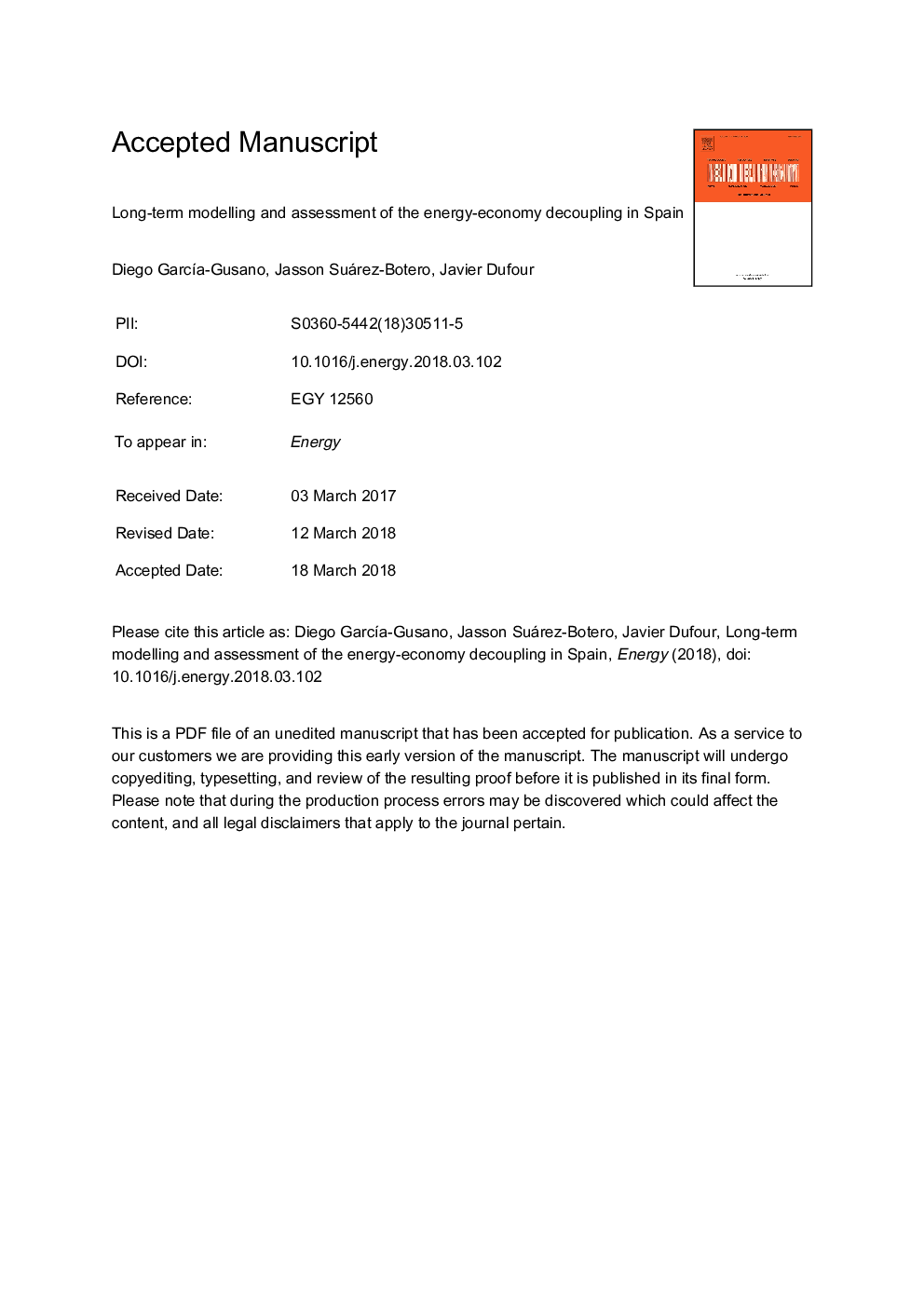| Article ID | Journal | Published Year | Pages | File Type |
|---|---|---|---|---|
| 8071764 | Energy | 2018 | 42 Pages |
Abstract
Over the past few years, a decoupling effect between economic growth and energy consumption has been detected in many countries. Albeit this fact may be understood as positive, it supposes a concern for energy systems modellers since assumption-making process, especially concerning the linkage of the socio-economic drivers with energy demand, cannot be founded on simplistic relationships any longer. Accordingly, this article develops a double assessment to solve that problem. It proposes the use of econometric models as suitable tools to project the electricity demand in Spain, and besides, it introduces those refined energy demand projections as input for the Spanish energy system model, created using the LEAP framework. The results show substantial deviations (up to 18% by 2050) in the electricity production required and, to some extent, such divergences involve changes in the electricity production technology mix. Besides, from the electricity demand side, the use of refined demand projections has a significant effect on the sectoral behaviour, proving that -with respect to a simplistic set of projections- industry demand is overestimated, whereas residential demand is undervalued. In summary, due to the existence of a decoupling effect, energy systems modellers should avoid making simplistic assumptions when taking exogenous demand projections.
Related Topics
Physical Sciences and Engineering
Energy
Energy (General)
Authors
Diego GarcÃa-Gusano, Jasson Suárez-Botero, Javier Dufour,
